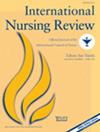Defining nurse-led models of care: Contemporary approaches to nursing
Abstract
Background
The evolving nature of nursing practice necessitates the development and implementation of contemporary models of care; however, inconsistent definitions hinder this. With the increasing demand for nurse-led models of care, it is crucial to establish a consistent understanding to ensure the efficacy of implemented models.
Aim
We aim to provide a working definition for nursing models of care, then using this, present the key features that nurse-led models of care should consider.
Sources of Evidence
An unstructured literature review was used to explore the research aim.
Discussion
We propose that nursing models of care be defined as involving three interrelated domains: (1) a theoretical basis that underpins conceptualisation of care, (2) organisational work methods that direct task delegation, organisational governance, and care responsibility and (3) practical methods for care delivery that describes practical care methodologies. Extrapolating from this framework, nurse-led models of care are defined as having an evidence-based and person-centred theoretical basis, an organisational work method driven by nurses, and practical methods of care delivery supported by the creation of holistic care plans.
Conclusion
As the design and implementation of a model of care is influenced by unique contextual considerations, the definitions provided in this paper should be considered as a starting point for further refinement, consideration and discussion.
Implications for Nursing Policy
Standardisation in how models of care are defined enables greater understanding and improved comparability between disparate sources of evidence and can aid stakeholders by providing a common language. Creating standardisation in the terminology of nurse-led models of care specifically supports the continued advocacy efforts for these models of care and assists policymakers and health providers in their design and implementation.

 求助内容:
求助内容: 应助结果提醒方式:
应助结果提醒方式:


